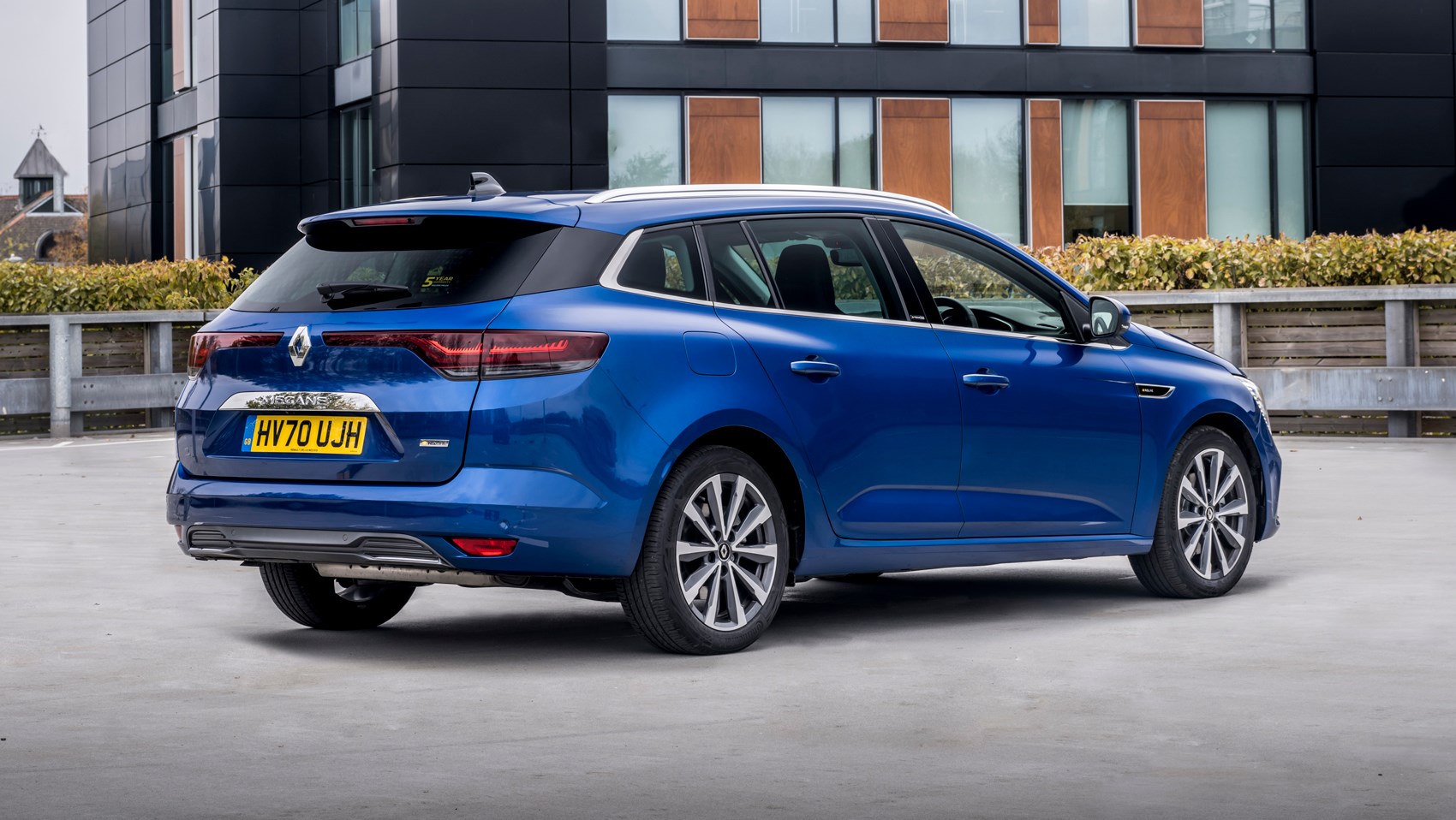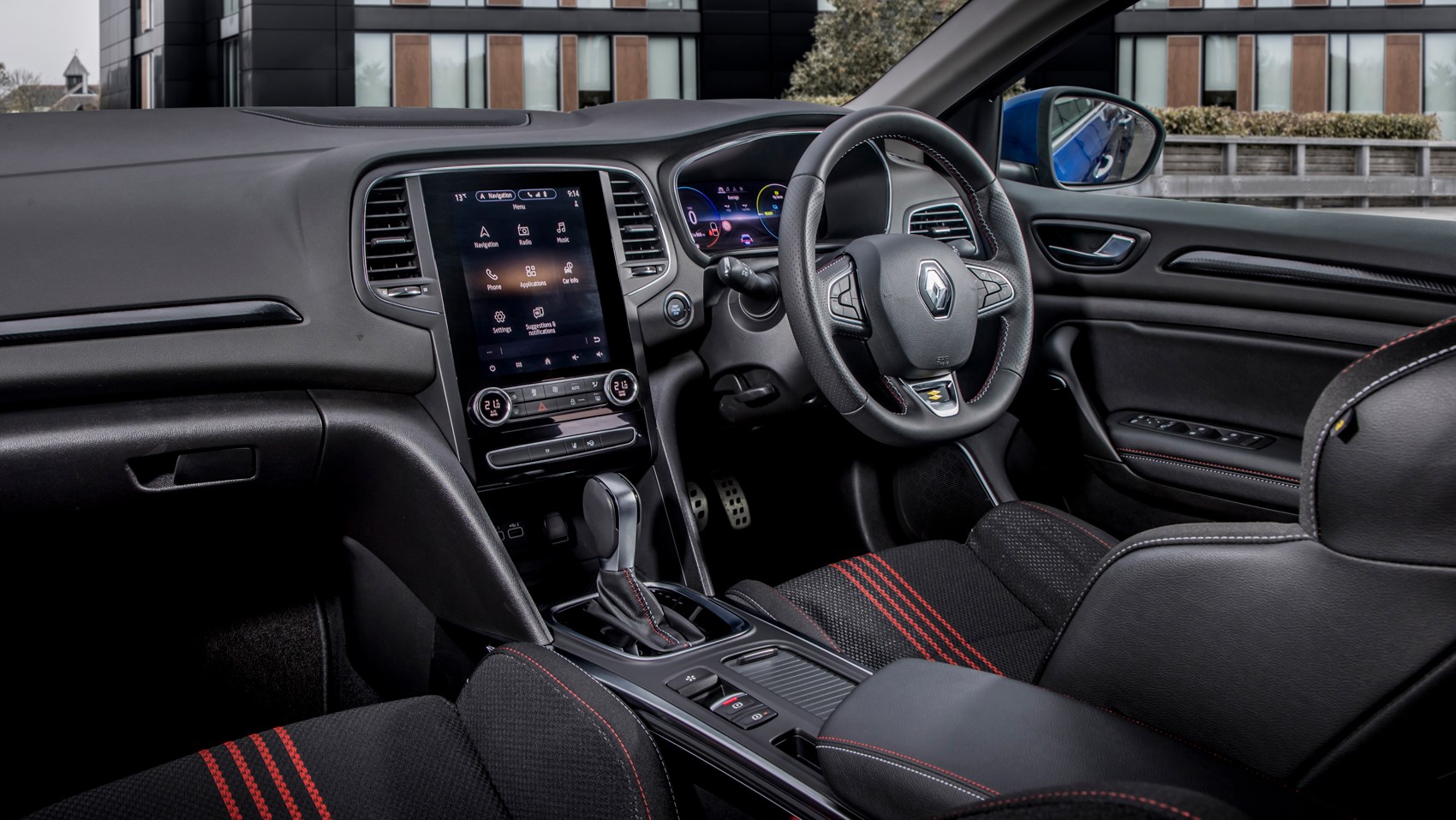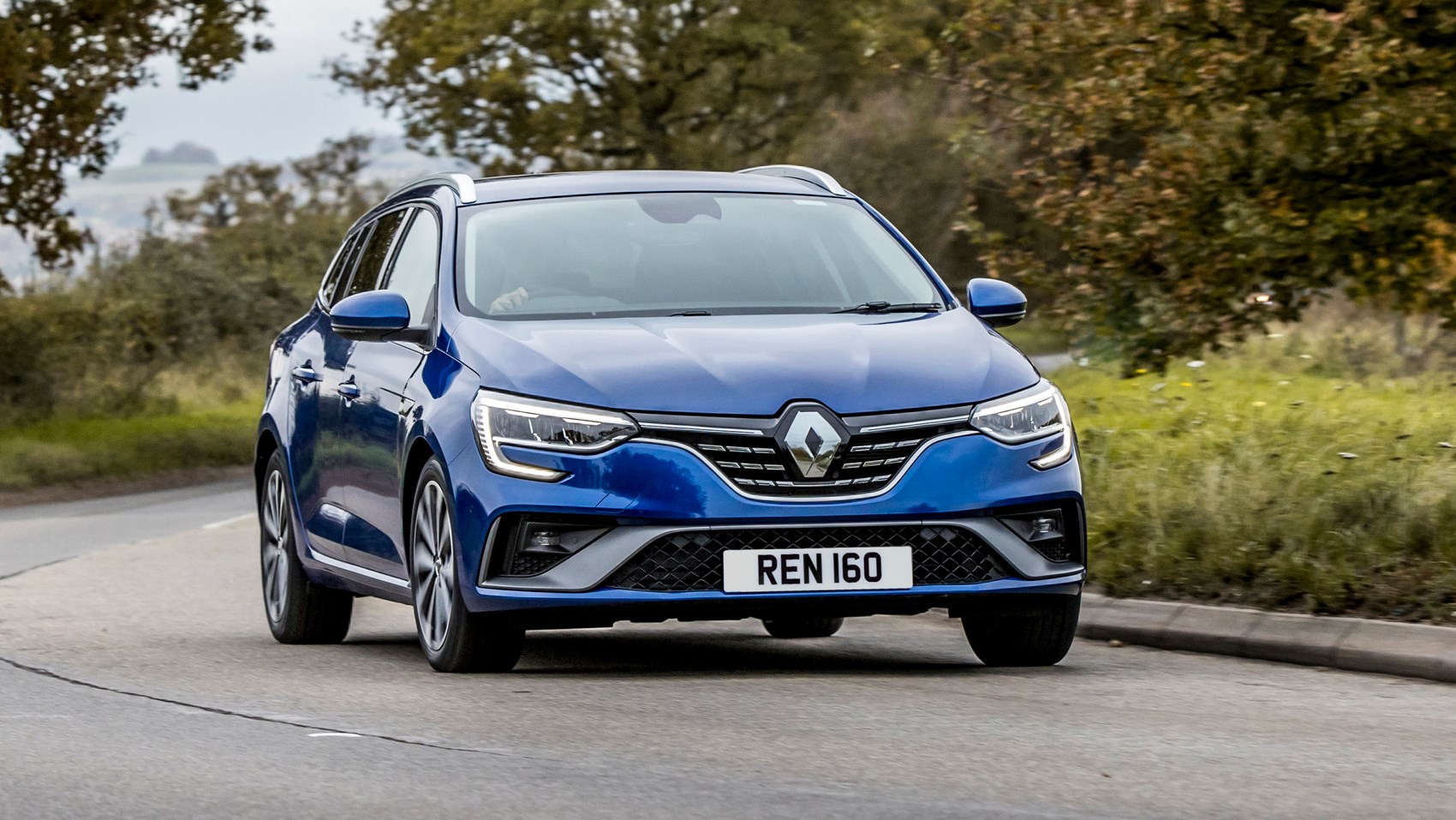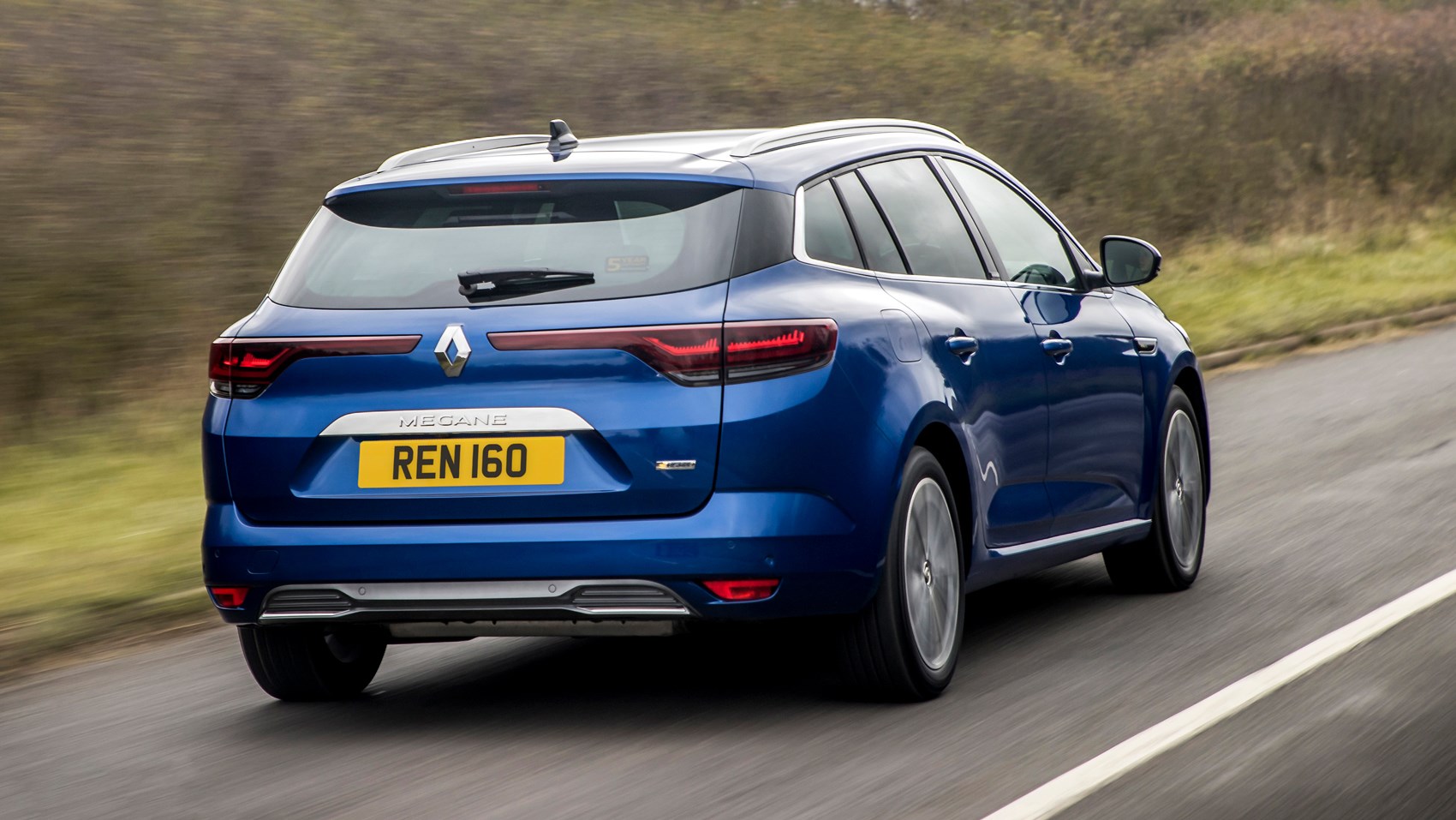► First drive of facelifted PHEV Megane
► Lots of technology, conventional result
► Range starts from £29,595
Renault seems to be all about the Clio, Captur and Zoe at the moment, certainly in terms of its marketing efforts, but that doesn’t mean the Megane has suddenly stopped being good. Renault has facelifted the current one, offering a new plug-in hybrid powertrain, aiming to grab the attention of drivers considering the Audi A3 TFSIe or Golf GTE, and maybe distracted by plug-in Kia or Hyundai options.
It benefits from the same determination to improve the perception of quality that has pushed the fifth-generation Clio ahead of many premium rivals in terms of fit and finish. So it would be a pity if the current popularity of crossovers over conventional C-segment hatchbacks were to eclipse the Megane.
Renault E-Tech hybrid system explained
The estate version, the Megane Sport Tourer, still sells strongly, and the E-Tech driven here should strengthen its position as a popular company car, with low benefit-in-kind tax, low running costs and a very appealing list price. You can spec an E-Tech Sport Tourer now, with the hatch coming later in 2021.
Megane E-Tech: introducing the 2021 Megane
Elongating the Megane hatchback to create the Sport Tourer yields a reasonably large boot, albeit with a sloping, tapered shape that falls short of outright practicality. Nothing is sacrificed for the plug-in hybrid technology, as the 12kWh battery pack is tucked in beneath the floor without introducing a Zoe-esque raised rear footwell, or devouring oddments space in the boot.

Still, there’s less space under the boot floor than some non-hybrid rivals can offer, and what there is provides a home for the electrical cables you’d otherwise be carting about where you want to put shopping.
The facelift sharpens up the front and improves the depth of the distinctive rear lights, while also reducing some of the tackier touches, making the Sport Tourer slightly more handsome than before. It’s a subtle change, and one soon forgotten once you’re behind the wheel.

The driving position is fantastic, with a generous and perfectly-placed footrest, comfortable yet firmly bolstered seats – almost too firm for the handling on offer in RS Line form, raising expectations a touch too far. It’s easy to drive, with a simple, robust gear selector, and it feels airy thanks to a large traditional sunroof with a blind that can be pulled closed with the roof open. New climate control buttons and dials are intuitive, and keep the large touchscreen for infotainment purposes alone. That was a particular bugbear with the pre-facelift car. The EV mode has a dedicated, easily-found switch.
Sport? No. Tourer, yes
RS Line is sporty in attitude, but the E-Tech powertrain is more pragmatic. Yes, there’s 158bhp to play with, but even in Sports mode it’s no more than adequate; forget thoughts of Megane RS-baiting performance off the line, and revel in the Zoe-like song as you tiptoe out of residential streets being holier-than-thou instead of hooligan-at-large.
Pace up to legal speeds is reasonable and refined, hushed, apart from a distinctive whine that hovers on the edge of audible if the radio’s off.
At lower speeds, you can hear the combustion half of the powerpack waking up and working frantically, often with little relationship to the speed you’re going, but once you’re over 50mph the tyre noise soon sorts that distraction out for you. Again, pop the radio on, have a conversation, you’ll soon forget it, but it highlights how much work Renault has done to mute the engine compartment’s soundtrack.

For the most part, the plug-in E-Tech system is transparent and effective. Foot to the floor, the car will optimistically display Boost on the dash; it has to, as you wouldn’t know otherwise. Because of the extra 200kg of batteries the Megane E-Tech has to carry, that 158bhp is comparable to a 130bhp conventionally-powered small estate, but even so the electric motor’s torque does deliver smooth and reasonably lively off-the-line performance.
There’s no disguising the weight’s impact on handling, for better or worse. The Megane’s ride is, for the most part, unobtrusive and stable, marred only by the levels of road noise. Small imperfections and drain covers yield a distant thud, and overall refinement levels are pretty good for a car that’s going for mass-market appeal and budgets. For context, the Megane E-Tech costs only a little more than a fully-equipped, comparably-powerful Skoda Scala, and has considerably lower BiK, and it feels like a class above in style, materials and tech; it’s really very good, and very good value.

Where it does falter is in terms of rear passenger space. The sporty front seats of the RS Line and relatively small amount of legroom means the Megane Sport Tourer isn’t going to win fans among adult-sized passengers. On the other hand, as a capacious, sporty estate for work or for young families, it’s a good compromise of compact size, adequate performance and luggage space.
Renault Megane E-Tech hybrid: verdict
Unlike the Clio E-Tech, which has a bit of sparkle and warm-hatch spirit, the Megane E-Tech is very much about normalising emissions-reducing powertrains. The tropes of ‘eerily hushed’ or ‘immense torque away from the lights’ don’t really apply here. It’s just a solid feeling, reasonably comfortable small family estate car with unusually low emissions for the performance.
That really should be enough – but it would be nice to see some of the more adventurous trim and styling choices of the Clio and Captur to make the Megane feel special too.
Check out our other Renault reviews